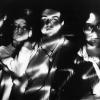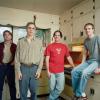SXSW 2019: Unpacking a Weird Week in Austin
Anxiety, confusion and emotional lethargy were more on deck during this year’s South by Southwest than I’ve ever encountered before.
It’s an awful way to lead into this story, I know. Yet, the fact is, even though festival organizers and talent bookers and independent promoters of all stripes had done their damndest to fill as many rooms and bills with FOMO-inducing talent, there’s not a single person or act that was on everybody’s mind or in everybody’s headline. Even I, who for the past 10 years have been wildly enthusiastic about attending as many panels, speaking engagements and other non-live-show official things as possible, was on edge, lethargically cautious and totally worn down by the week’s end.
But that’s bound to happen when the biggest news of the week had nothing to do with SXSW, except in terms of proximity. Chances are good you’ve already heard about the multiple shooting incidents that happened across the week, two of which were right on the edge of the main festival footprint and one that was smack dab in the middle of it. All available sources indicate that none of these actors were involved, even tangentially, with SXSW in either an official or unofficial capacity.
No, we weren’t dealing with a sole rapper who bought too far into a lifestyle and killed four people like we did in 2014. What happened this year was just, well, Austin. In a story published last October regarding a weekend of three separate shooting events in Austin’s downtown entertainment district, Austin news source KXAN noted, “From Jan. 1 to Oct. 22 of [2017], there were 27 firearm incidents in the downtown area, Chief [Brian] Manley said. In that same time period [in 2018], there were 25 firearm incidents.” The headline of that story noted the Austin Police Department’s commitment to placing more officers in the downtown area.
On Sunday morning, Mar. 17, as most SXSW attendees were packing their bags and waving their goodbyes, the Austin American-Statesman made note in its story about two overnight shootings that Manley was again committed to increasing police presence in the downtown entertainment district. As I walked back to my week’s lodging late Saturday night, passing multiple officers with military-style firearms against their chests, their presence was well felt even before the chief was quoted.
None of what you’ve just read is in any way a slag on the Austin police department or SXSW as an organizing body. The latter has made enormous strides in tamping down the frenzied insanity of previous years, and at least from a straight-up crowd-control perspective, the former has done an outstanding job. Honestly, I can only begin to imagine the exhaustion and frustration of each.
That said, in the modern parlance, “user experience” is supreme, no matter anyone’s best efforts. Which is exactly why I had to write the above lede the way I did, why it took so long to file this story in the first place, and why it’s frustrating and sad that I had to.
But before I was forced into writing that, I did see some incredible performances, and that’s really all I want to talk about now. I’d been wanting to see Hong Kong’s David Boring ever since I heard about them, and their show at Valhalla was, well, godhead. Shifting between sheets of Kevin Shields-style melodicism draped in noise and 1990s bark punk, with a healthy dose of rhythmic abandon, they can very reductively be described along the lines of a post-punk My Bloody Valentine, if you didn’t already figure that out.
The deliberately post-punk Big Joanie, from London, was disappointing. They’d played a lot of shows already by the time I caught them Saturday night at Cheer Up Charlie’s and seemed tired and, maybe, a little bored. The previous night’s show by Nashville’s Taco Mouth at the same venue, though, was an ear splitting shred fest of heavy, garage-y tunefulness and full on rock-and-roll-isms.
Aftrotronix, lead by Chadian-born Caleb Rimtobaye, was spectacular. Just utterly incredible. Afrobeat rhythms and electronic production were all on deck when I caught the duo at The Russian House, which is literally a Russian tea room decorated with Soviet-era posters, magazines, et al. The Crazy World of Arthur Brown, whose 1969 hit “Fire” still spins on anglophile turntables everywhere, was surprisingly strong and engaging. I’d gone to see the band simply because of the rarity of the occasion and a “Why not?” attitude, and was really glad I did. Brown himself is lean and adequately muscular for a man his age, and his voice is quite strong. As the show ended, I turned to my left and realized I watched the whole show standing right next to Rolling Stone senior editor David Fricke, who was all smiles.
Rapper Rico Nasty played several shows last week and was well entrenched at SXSW by the time I caught her at Empire. She came out swinging, never slowed down and was much more hardcore live than her records indicate. Atlanta’s Yung Baby Tate, hot off the release of her album GIRLS, is a total package of talent, personality and—at least for now—hype. Her showing at Fader Fort reemphasized the publication’s reputation for ground-floor opportunities to catch up-and-comers.
Graham Coxon, best known for his role as guitarist for Brit heroes Blur, played a subdued acoustic set at the Central Presbyterian Church, which has always been one of my favorite places to catch an act during SXSW. The church itself is very open to whatever SXSW books there and, for its part, is able to raise funds via its youth group selling concessions. In previous years, I’ve seen both The XX and Charlie XCX there. Each time, the parishioners were among the most polite and kind folks I encountered all week.
By the very end of Saturday night—long after the Athens in Austin party had ended and the Georgia Theatre showcase at Antone’s was hosting its headliner, The Marcus King Band—there was finally a chance to catch a set by The Chills, whom I’d last seen at the old 40 Watt (when it was where Caledonia is now) back in 1990. The cruel irony of leaving Antone’s, a mere street away from the Saturday night shooting on Sixth Street, which had happened maybe an hour earlier, and heading down to see New Zealand’s Chills wasn’t lost on me. The band, led by songwriter and only constant for the last several years Martin Phillipps, was wonderful. The crowd inside Beerland, which I’d expected to be older, record-nerd dudes, was refreshingly mixed in ages, gender, style, etc. It was as if The Chills—who haven’t had even an inkling of a stateside hit in decades—were something we all agreed on and were happy to share. The group’s taut set of 10 or so songs was welcomed by cheers, applause and smiles.
It seemed well fitting, even if sadly uncomfortable when taken to heart, that as the band effortlessly performed its “Heavenly Pop Hit,” I felt like I was hearing it for the first time. After the week that was, there was just no way to hear Phillipps croon the lines, “Once we were damned, now I guess we are angels/ For we passed though the dark and eluded the dangers” without feeling blessed to both be in that moment with kindred fans and, in a very real sense, simply to be.














comments